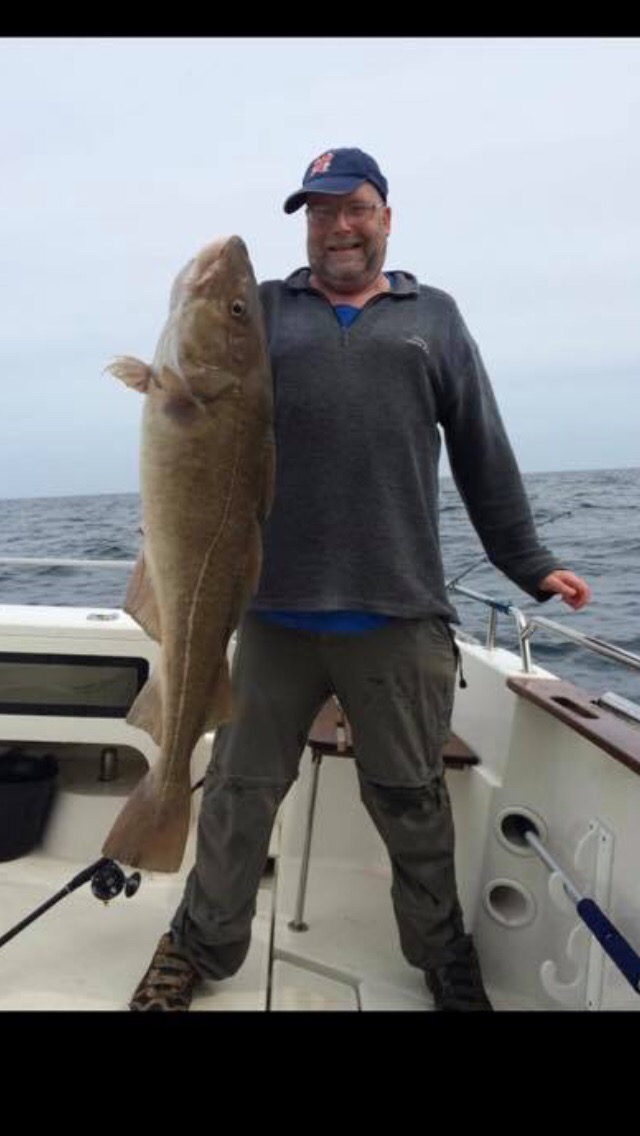Lets be honest its not always an easy thing to do, especially when the fish start coming in numbers, your hands are wet and its just started raining so why would you do it?

At the Pat Smith Database we believe that recreational sea angling data is the family silver of the sport and the key to ensuring it has a long term future both in terms of us having fish to catch and being allowed to continue to catch them. So, here are some of the reasons we think recording catch data is a positive thing to do.
1. To enable to accurately recall events
Some people have exceptional memories and can recall events from many years ago in great detail but most of us would struggle to recall from memory exactly how many Tope we caught in 1998 for example. We might remember when we caught our biggest Tope or a very good or bad year, but even those with exceptional memories would struggle to recall how many were caught on each trip in a particular year.
The marine environment is enormously complex but even simple information like catch data for the number of a species caught and the hours fished for them per trip can help us better understand our fishery.
We already have this for Blue, Porbeagle, Thresher and Mako shark in the UK since the early 1950’s. Timeline data can be analysed alongside other factors like availability of bait fish, weather patterns, water condition etc, all of which ultimately helps us better understand how to protect our fish stocks.
2. To protect recreational sea angling
There are some who would prefer that recreational sea angling was not allowed as they consider it a cruel sport. When faced with this criticism I point out that the sport has made many changes over the years with the introduction of barbless hooks, circle hooks, and following catch and release protocols.
I also explain how the sport has the unique capability to collate continuous data timelines which are valuable for conservation work and that it regularly works with marine scientists to catch fish to be tagged and tracked. This rarely changes their view on the sport but most acknowledge that by collecting data our sport plays a part in improving our marine environment and protecting the species within it.
3. To position the sport as a key contributor to marine conservation
The Pat Smith Database recognises recreational sea angling charter skippers and anglers as Experts by Experience. Every day a large number of skippers and anglers go fishing and consciously or unconsciously they collect data and knowledge.
The vast majority of the recreational sea angling community however, don’t share their data. One of the reasons for this is the sport has previously shared data in good faith only to find its the last they hear about the project or research which they have contributed to.
This is why the Pat Smith Database never share our contributors data with anyone. We analyse the data and where relevant share the results of the analysis so decisions can be taken on a more informed basis. We also ensure our contributors are kept fully informed on the analysis work we are doing, and its purpose. Contributors can ask for their data to be excluded in an analysis if they are not comfortable with it and their data can be removed from the database at any time.
We also produce scientific papers to share our findings with the recreational and scientific communities and skipper contributors are listed on these documents.
A recent example is where an analysis of the Blue Shark timeline data provided the International Commission for the Conservation of Atlantic Tunas (ICCAT) with the information they needed to introduce a total allowable catch (TAC) for Blue Sharks which gave this species more protection.
4. Policy decisions
One of the Brexit outcomes is the introduction of the UK Fisheries Act which formally recognises recreational sea angling as a stakeholder and provides the sport with a platform to participate in UK fisheries management decisions.
Its important that we take this opportunity and use our knowledge to better inform decision making. If we don't, then others will take advantage and use our absence to further promote their own interests.
Recreational sea angling data is widely recognised as high quality and can therefore significantly improve our leverage in fisheries management discussions which is another reason for recording your catches.
I hope by now I will have convinced you to keep your catch data, even if its only basic numbers of the species caught and the length of time you were fishing for them on each trip.
You may choose to keep it for your own use or perhaps share it, hopefully with the Pat Smith Databse. Your data increases its power significantly when combined with others data and this is what we do at the Pat Smith Database.
When you share data with any organisation its important that you satisfy yourself it will be used responsibly and that your rights under GDPR will be fully observed. Remember that even if you trust the project manager/organisation who you are dealing with today, they could leave, or the organisation close down and then those with access to your data may use it less responsibly.
If you would like to share your catch data with the Pat Smith Database or if you are considering sharing it with another organisation we would be happy to talk the process through with you and share the experiences we have had in this area.







Comentarios